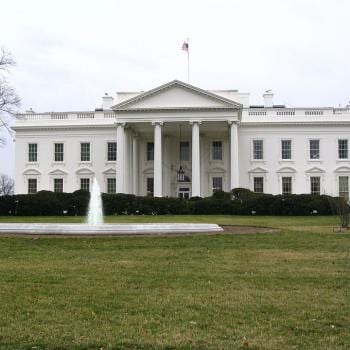 What is disconcerting about the abortion debate is that there is no agreement as to when life actually starts, so people who support abortion do not see themselves invested emotionally in these newly conceived human beings. When we talk about other life issues, such as euthanasia, war, or even the death penalty, we may not find as much controversy, because we can see the elderly or the soldier or the prisoner having lived their lives and continuing to do so: they breathe, move, eat, talk, feel, love, cry… As a result, there is no question as to whether they are truly human beings, basically, because we can witness their existence. The main argument of many in the pro-choice party is that embryos are not human beings, perhaps because we cannot see them breathe, move, eat, talk, feel, love, cry… Thus, it almost requires a leap of faith to believe how God brings humans to life. As Catholics, we all know that life starts at conception, but as product of the Enlightenment, our society cannot adhere to such notion if this is not first irrefutably proven through facts and data. However, even if such study can indisputably conclude that life starts at conception, then this idea would clash with the individualism that leads a person to claim its independence from God and others around him and that wishes to become the sole master of his own body.If you observe pro-abortion protests, it almost seems as if abortion has become far more than just an attempt to prevent unwanted children from suffering, or saving the life of a mother that is endangered with a difficult pregnancy, or to preserve the alleged “right to privacy” of women, but mostly a way to prove that we are all—including men—masters of our own bodies and that only we can decide what to do with them.
What is disconcerting about the abortion debate is that there is no agreement as to when life actually starts, so people who support abortion do not see themselves invested emotionally in these newly conceived human beings. When we talk about other life issues, such as euthanasia, war, or even the death penalty, we may not find as much controversy, because we can see the elderly or the soldier or the prisoner having lived their lives and continuing to do so: they breathe, move, eat, talk, feel, love, cry… As a result, there is no question as to whether they are truly human beings, basically, because we can witness their existence. The main argument of many in the pro-choice party is that embryos are not human beings, perhaps because we cannot see them breathe, move, eat, talk, feel, love, cry… Thus, it almost requires a leap of faith to believe how God brings humans to life. As Catholics, we all know that life starts at conception, but as product of the Enlightenment, our society cannot adhere to such notion if this is not first irrefutably proven through facts and data. However, even if such study can indisputably conclude that life starts at conception, then this idea would clash with the individualism that leads a person to claim its independence from God and others around him and that wishes to become the sole master of his own body.If you observe pro-abortion protests, it almost seems as if abortion has become far more than just an attempt to prevent unwanted children from suffering, or saving the life of a mother that is endangered with a difficult pregnancy, or to preserve the alleged “right to privacy” of women, but mostly a way to prove that we are all—including men—masters of our own bodies and that only we can decide what to do with them.
We have become overly optimistic with technology and other societal advances. We believe that we are a much more advanced civilization that we were perhaps two centuries ago, because we have undergone progress in matters of equality and civil rights. Some of this may be true, since we have abolished slavery and now people of any race or gender can exercise their right to vote, or to work, or to go to the same schools. Nonetheless, in matters of morality, it seems that we have gone so far back… so far back in time that there may be no precedent in human history: it has become lawful for people to decide which human beings should live and which ones should not, even before these same human beings commit a crime so they could perhaps be sentenced to death, even before they can know the difference between good and evil, even before they can take their first steps, even before they can speak and say their first words… even before they can open their eyes for the first time in their lives.
We need to return to our Christian understanding of who we are, where we come from, and what our role is in this world. We need urgently a new philosophy of the human person. We need to go back to our understanding of the human person created as the imago Dei and understand life as the gratuitous gift given by God so that we could share in the infinite and eternal love of the Trinity.












